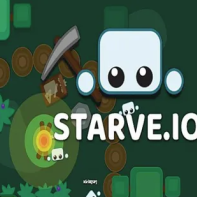It sounds like you’re asking about Don’t Starve (the survival game by Klei) rather than Starve.io or the horror film Starve Acre, but I can cover all three—just let me know which version you’re referring to. For now, here’s the content and ending of Don’t Starve:
🧟♂️ Don’t Starve – Content Overview
-
Main gameplay loop: You control Wilson, a scientist trapped in a bizarre, gothic realm known as The Constant. Your mission is simple—to survive as long as possible by managing hunger, sanity, and health, while avoiding supernatural threats.
-
Crafting & exploration: Scavenge food, build fire, harvest resources, and craft tools, structures, farms, and crockpots. Beware: digging into wastelands or caves reveals tougher enemies and rich materials.
-
Environmental hazards: Each season poses unique risks—blinding snow in winter, relentless heat in summer, and monster swarms by night. The invisible Charlie lurks in the darkness unless you’re holding a light.
-
Adventure Mode (Story): Find four key gears hidden across maps, craft Maxwell’s door, and access increasingly difficult realms that deepen the lore.
🎬 Ending / Conclusion
-
Epilogue: Once you complete the adventure and experience the epilogue, you uncover a haunting truth—not through a traditional boss fight, but through a disquieting existential ending. It reveals unsettling hints about the nature of Wilson’s predicament and Maxwell’s torment.
- Lore takeaway: The game leaves much open-ended—Clues suggest your survival is cyclical, the realm is under Maxwell’s cruel control, and escape may be impossible. The conclusion is more thematic than narrative, reinforcing the game’s eerie atmosphere.
- Community interpretations: Players speculate on finale details—some expect Maxwell to merge with Charlie, survivors escaping, or cyclical endings that echo the single-player mode.
🕹️ Why It Resonates
-
Atmosphere & difficulty: Its Tim Burton–inspired visuals, haunting music, and relentless tension evoke a sense of gothic survival horror.
- Replayability: Each run is different, with permadeath, procedurally generated worlds, and thriving crafting systems, making each failure educational.
-
Mystery & lore: Narrative is implied, not spoon-fed. Discovering Maxwell’s realm, decoding hint drops, and interpreting the endgame offer rich speculation.

